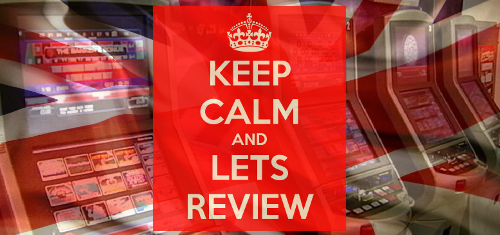 The UK government is reportedly prepping a review of the fixed-odds betting terminals (FOBT) in the nation’s betting shops.
The UK government is reportedly prepping a review of the fixed-odds betting terminals (FOBT) in the nation’s betting shops.
On Friday, the Daily Mail interrupted its non-stop delivery of taut tummy, teeny tiny bikini and side-boob articles long enough to report that the UK’s Department of Culture, Media and Sport (DCMS) would announce a review of FOBT standards and practices within the next couple of weeks.
The Mail boldly predicted that the review, which it says will be completed before the end of the year, would include recommendations to reduce maximum stakes from their current £100 per spin to just £2, while the maximum number of machines could be reduced from its current level of four.
The Mail – which used the phrase “crack cocaine of gambling” no less than five times in its article – also suggested that the gambling review could include potential curbs on online gambling sites’ ability to advertise on television.
The Mail said new Prime Minister Theresa May – the mention of whom was inexplicably not accompanied by a photo of her busting out of a low-cut blouse or getting out of a car with her knickers exposed – was fully supportive of the review.
The Mail’s partners-in-outrage at the Campaign for Fairer Gambling were also sounding the FOBT alarm this week, telling everyone to be sure to turn in to the Sept. 12 edition of the BBC’s Panorama investigative news program, which is objectively titled “Why are Gambling Machines Addictive?”
The episode will reportedly follow the girlfriend of a man whose suicide note specifically fingered FOBTs as a contributing factor in his demise, as she goes looking to discover “what it is about the design of the machines that makes them so addictive and sees evidence that they can affect the brains of long-term gamblers.”
Panorama last shone its investigative spotlight on FOBT back in 2012, and it wasn’t a pretty picture, introducing the phrase “FOBT rage” into the nation’s lexicon. The betting industry should expect a similarly bumpy ride come Monday night.
Despite the anti-FOBT hysteria, UK Gambling Commission surveys have repeatedly shown the rates of problem gambling failed to rise above 1% between 1999 and 2012, and have actually undergone a slight decline, despite increases in the number of gambling options. But you know, math…